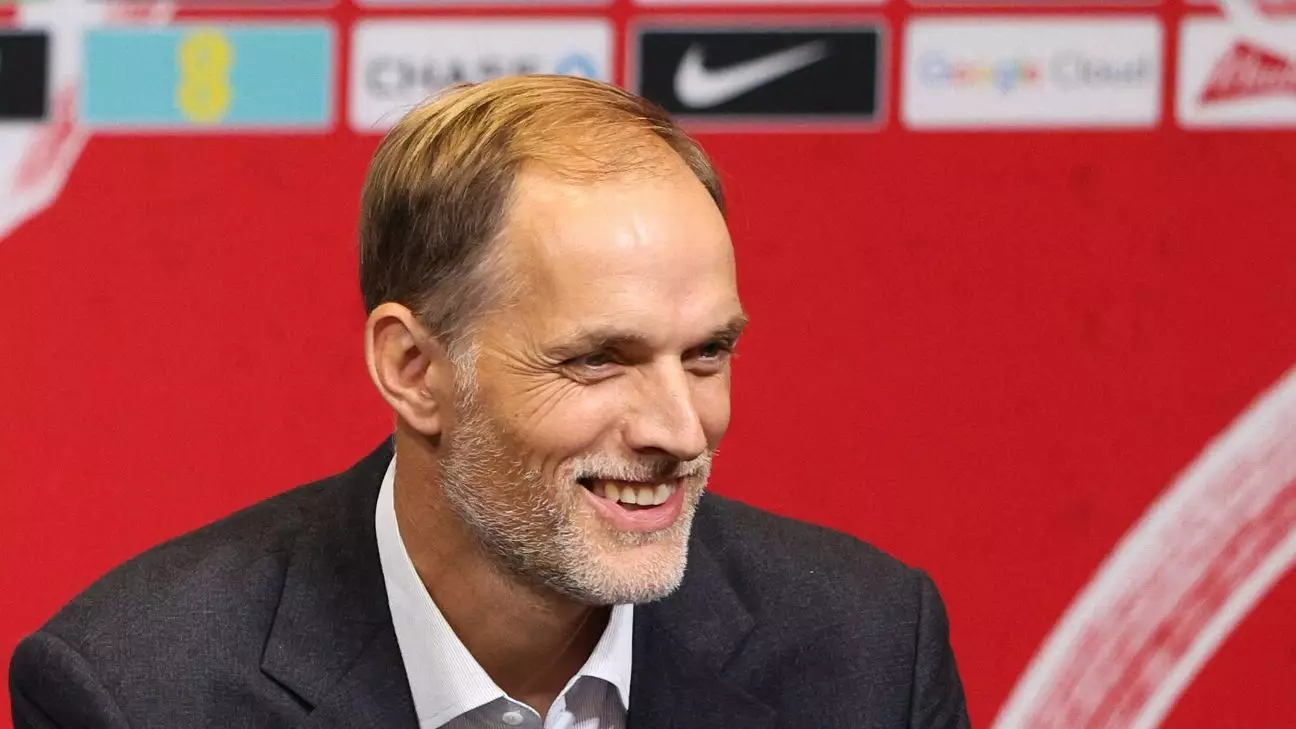In a significant shift in the landscape of English football, Thomas Tuchel has officially taken the helm of the national team, embracing the challenge with the clarity that comes from years of high-stakes management experience. As the third foreign-born manager to lead England’s men’s side, Tuchel’s appointment comes amid a rich narrative of both opportunity and skepticism, as he seeks to forge a path towards the coveted second star above the Three Lions’ crest.
Stepping into a role laden with expectations and historical significance, Tuchel has candidly acknowledged the complexities that lie ahead. Describing the opportunity as a “step into the unknown,” he is conscious of the unique demands that come with international management—particularly the transition from the daily grind of club football to the sporadic, yet intense, focus required for international matches.
Tuchel’s direct experiences in top-tier clubs—where he expertly groomed talent at Dortmund, PSG, Chelsea, and Bayern Munich—will serve as a dual-edged sword. While his past successes come with a formidable reputation, they also set a high bar for expectations from both fans and players alike. His contract spans 18 months, a timeframe that, although seemingly brief, provides a structured environment where Tuchel can cultivate relationships with players and staff, crucial for establishing a cohesive unit aimed at World Cup glory.
As someone who has enjoyed substantial success but avoided prolonged tenures at most clubs, Tuchel faces the immediate challenge of winning over sceptics within the English football community. With a history of rapid adjustments, he insists on the need to keep the focus razor-sharp during this interim period: “We will see what comes next, but for now, our primary focus is on the qualifiers and the World Cup.”
While his past suggests a propensity for short, intense bursts of success, Tuchel aims to leverage this knowledge to create a long-term vision. He is acutely aware that England’s recent performance in international competitions, including reaching the finals in both the Euro tournaments, has prepared the team for potential success. His ambition is clear: to not only continue this trend of reaching the latter stages of tournaments but to also convert those moments into tangible silverware.
One of Tuchel’s explicit goals is to introduce elements from club football that have historically yielded results. He highlights the competitive nature of the Premier League as a breeding ground for players who can thrive under pressure. By exporting behaviors and principles from club settings into the national framework, Tuchel believes he can inspire the team to surpass existing limitations.
As he embarks on this journey, understanding the emotional connection that players have with representing their country will be essential. Tuchel’s appreciation for the national anthem and the significance it holds speaks to his willingness to integrate deeply into the fabric of English football culture. He will have to strike a balance between respecting traditions and asserting his own managerial identity—a task that undoubtedly comes with its own challenges given the historical enmities and rivalries within the realm of football.
Looking ahead, Tuchel’s appointment marks a new chapter, not just for him but for the future of English football. The road to the 2026 FIFA World Cup is paved with uncertainty, but it is also filled with potential—both in terms of player talent and the historical narrative surrounding the national team. Tuchel’s perspective reflects a blend of realism and optimism, understanding that success at this level requires more than just talent; it demands a kind of alchemy that combines strategy, teamwork, and, importantly, luck.
Tuchel’s coaching philosophy will be scrutinized as he attempts to conjure a winning mentality within the squad, ensuring that each player not only understands their role but also embraces the collective goal of achieving greatness on the world stage. This involves fostering mental resilience, creating synergy, and instilling a culture of unity and determination—all crucial ingredients that form the backbone of any successful team.
In summation, Tuchel’s entry into the England managerial position is both a challenge and an opportunity to redefine the narrative of English football. As he prepares to don the mantle of leadership, he remains undeterred by the weight of history resting on his shoulders, committed to leaving an indelible mark in pursuit of the elusive second star for England’s shirt.
